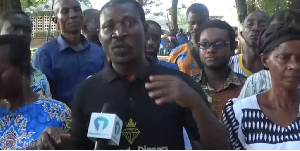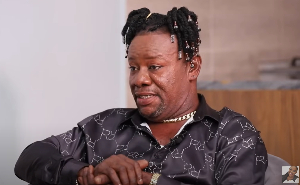Rocky55 Blog of Tuesday, 26 November 2024
Source: Isaac Appiah
The lIAG has released a new report that could cost the NPP the election, which is sad news.

In the last decade, Ghana's environmental sustainability has declined at the fastest rate in Africa, according to the 2024 Ibrahim Index of African Governance (IIAG). Ghana's declining performance in the "Sustainable Environment" sub-category, which examines important environmental variables like land and forest usage, air quality, and biodiversity conservation, is highlighted in the report, which assesses the governance performance of African countries over a ten-year period.
According to concerning data in the report, Ghana's score for sustainable land and forest use fell by 4.3 points, from 41.9 in 2014 to 37.6 in 2023. Nonetheless, the nation's capacity to preserve biodiversity on land and in water showed the biggest decline. This indicator's score fell sharply, by 12.1 points, from 37 points in 2014 to barely 24 points in 2023. The country's efforts to stop the illicit exploitation of biodiversity have also declined significantly, according to the report, with the score dropping by more than 59% from 61.5 in 2014 to 25.0 in 2023.
When contrasted to its regional peers, these numbers present a concerning picture of Ghana's environmental deterioration. Ghana currently has a negative score of -2.5 points, placing it 39th out of 54 African nations in terms of sustainable environmental practices. In sharp contrast, Togo, a neighbor, scores 20 points in the same category and is ranked far higher at 12th place. With a -2.5 point drop, Ghana's performance has also been identified as the most notable reduction in the environmental sustainability sector on the continent.
At a time when illicit mining operations, referred to locally as "galamsey," have grown to be a significant problem and negatively affect Ghana's natural resources, the IIAG report was released. Galamsey has harmed the environment by causing extensive deforestation, river pollution, and water source contamination. Given how urgent the situation has become, Parliament is anticipated to consider protest demands, including as the repeal of the Environmental Protection (Mining in Forest Reserves) Regulation 2022 (L.I. 2462), a law that has drawn criticism for permitting mining operations in protected forest areas.
Source: Modern Ghana


















